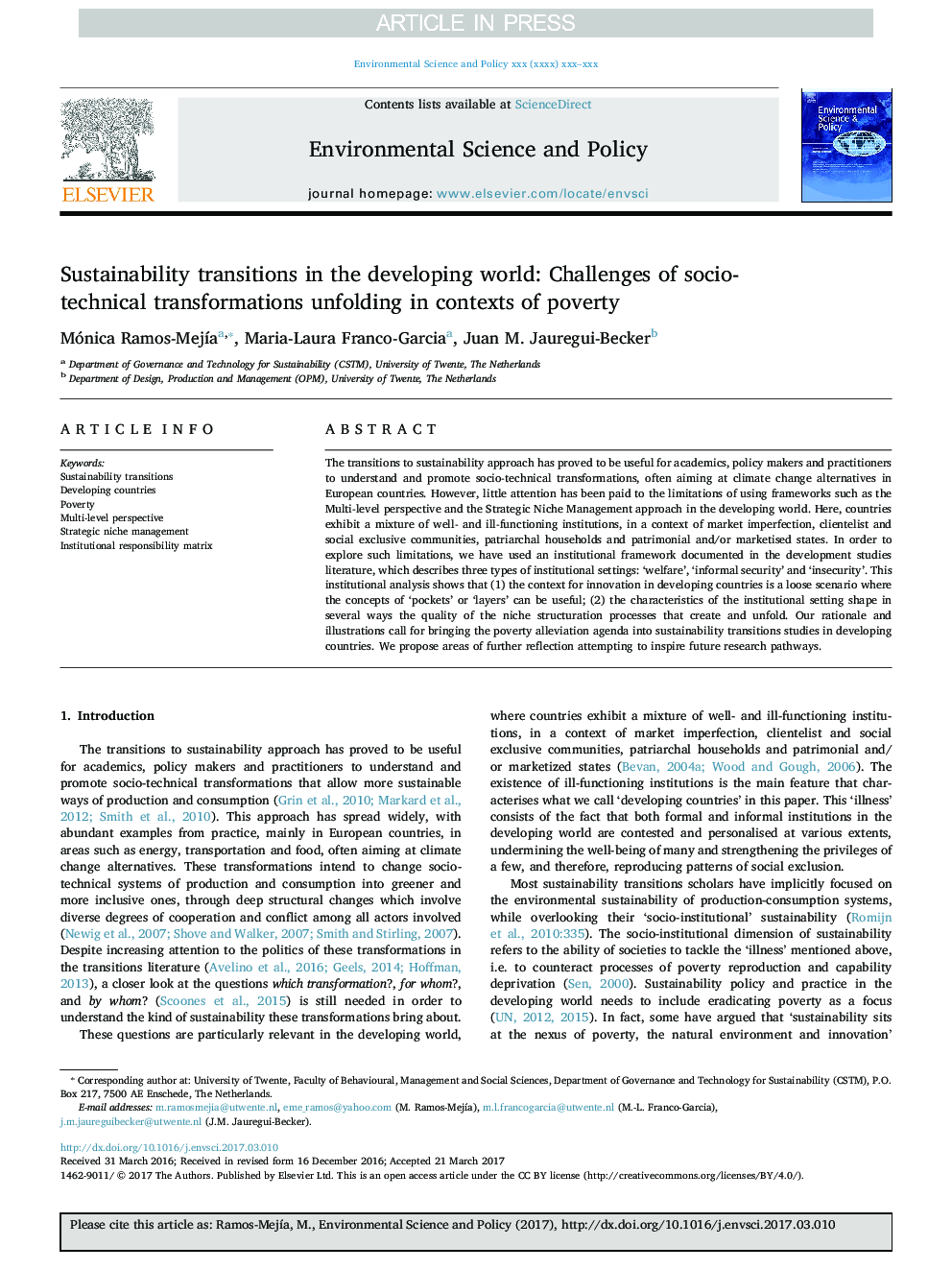| Article ID | Journal | Published Year | Pages | File Type |
|---|---|---|---|---|
| 7465996 | Environmental Science & Policy | 2018 | 7 Pages |
Abstract
The transitions to sustainability approach has proved to be useful for academics, policy makers and practitioners to understand and promote socio-technical transformations, often aiming at climate change alternatives in European countries. However, little attention has been paid to the limitations of using frameworks such as the Multi-level perspective and the Strategic Niche Management approach in the developing world. Here, countries exhibit a mixture of well- and ill-functioning institutions, in a context of market imperfection, clientelist and social exclusive communities, patriarchal households and patrimonial and/or marketised states. In order to explore such limitations, we have used an institutional framework documented in the development studies literature, which describes three types of institutional settings: 'welfare', 'informal security' and 'insecurity'. This institutional analysis shows that (1) the context for innovation in developing countries is a loose scenario where the concepts of 'pockets' or 'layers' can be useful; (2) the characteristics of the institutional setting shape in several ways the quality of the niche structuration processes that create and unfold. Our rationale and illustrations call for bringing the poverty alleviation agenda into sustainability transitions studies in developing countries. We propose areas of further reflection attempting to inspire future research pathways.
Keywords
Related Topics
Physical Sciences and Engineering
Energy
Renewable Energy, Sustainability and the Environment
Authors
Mónica Ramos-MejÃa, Maria-Laura Franco-Garcia, Juan M. Jauregui-Becker,
